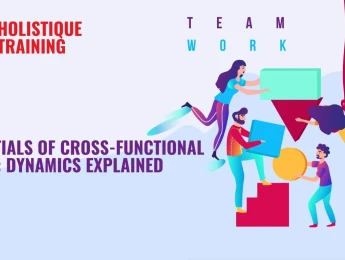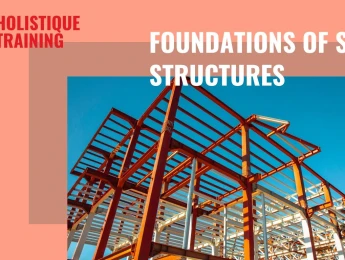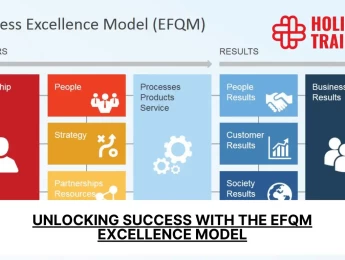- Table of Contents
- Introduction
- 1. "Negotiation, Mediation, and Conflict Resolution" by Essec Business School on Coursera
- 2. "Conflict Management Specialization" by University of California, Irvine on Coursera
- 3. "Managing Conflict and Negotiation" by Macquarie University on Coursera
- 4. "Conflict Resolution Skills" by LinkedIn Learning
- 5. Advanced Dispute Resolution & Negotiation Techniques at Holistique Training
Introduction
Effective negotiation and dispute resolution are indispensable skills in today's dynamic business landscape. Whether navigating complex agreements, managing team conflicts, or fostering strategic partnerships, mastering these techniques is crucial for achieving favorable outcomes and sustaining long-term relationships. This article explores the essential principles and advanced strategies in dispute resolution and negotiation, highlighting key approaches such as SMART objectives, communication mastery, and collaborative problem-solving. By understanding these fundamentals, professionals can enhance their ability to navigate conflicts, forge beneficial alliances, and drive organizational success.
1. "Negotiation, Mediation, and Conflict Resolution" by Essec Business School on Coursera
Summary about course: This course provides a deep understanding of conflict dynamics and equips learners with the tools to negotiate and mediate effectively. It covers theoretical frameworks and practical applications in various contexts, including business, personal relationships, and international affairs.
Duration: 6 weeks, approximately 2-3 hours per week
Language: English (subtitles available in multiple languages)
Level: Intermediate
What does a "Negotiation, Mediation, and Conflict Resolution" course teach you? This course teaches the fundamentals of negotiation, mediation, and conflict resolution. It explores strategies for managing and resolving conflicts, improving communication, and achieving mutually beneficial outcomes.
Who should take "Negotiation, Mediation, and Conflict Resolution" course? Professionals in management, human resources, law, or any field where conflict management is essential. It's also suitable for anyone interested in enhancing their negotiation and mediation skills.
Why should you take "Negotiation, Mediation, and Conflict Resolution" course? To develop critical skills in handling conflicts, which are crucial for maintaining healthy relationships in professional and personal environments. This course provides practical tools and techniques to navigate conflicts effectively.
2. "Conflict Management Specialization" by University of California, Irvine on Coursera
Summary about course: This specialization focuses on understanding and resolving conflicts in various settings. It includes courses on the psychology of conflict, strategies for conflict resolution, and practical applications in different industries.
Duration: 4 months, approximately 2-3 hours per week
Language: English
Level: Beginner to Intermediate
What does a "Conflict Management Specialization" course teach you? It teaches the psychological underpinnings of conflict, practical strategies for resolving conflicts, and how to apply these strategies in real-world situations. The specialization also covers communication skills and emotional intelligence.
Who should take "Conflict Management Specialization" course? Anyone looking to enhance their conflict resolution skills, including managers, team leaders, HR professionals, and individuals interested in personal development.
Why should you take "Conflict Management Specialization" course? To gain a comprehensive understanding of conflict dynamics and acquire practical tools for resolving conflicts effectively. This specialization helps improve workplace harmony and personal relationships.
3. "Managing Conflict and Negotiation" by Macquarie University on Coursera
Summary about course: This course delves into the nature of conflicts and how to manage them through effective negotiation techniques. It combines theoretical insights with practical exercises to build skills in managing disputes.
Duration: 6 weeks, approximately 2-4 hours per week
Language: English
Level: Intermediate
What does a "Managing Conflict and Negotiation" course teach you? It teaches the principles of conflict management and negotiation, including how to identify conflict sources, develop negotiation strategies, and implement conflict resolution plans.
Who should take "Managing Conflict and Negotiation" course? Professionals in leadership roles, HR, or anyone who needs to negotiate and manage conflicts regularly. It's also beneficial for individuals seeking to improve their negotiation skills.
Why should you take "Managing Conflict and Negotiation" course? To enhance your ability to handle conflicts constructively and negotiate effectively. This course provides practical skills that can be applied in various professional and personal scenarios.
4. "Conflict Resolution Skills" by LinkedIn Learning
Summary about course: This course offers practical techniques for resolving conflicts in the workplace and beyond. It covers essential skills for identifying, addressing, and managing conflicts constructively.
Duration: 1 hour
Language: English
Level: Beginner
What does a "Conflict Resolution Skills" course teach you? It teaches key conflict resolution skills, including effective communication, problem-solving, and negotiation techniques. The course emphasizes practical application and real-world scenarios.
Who should take "Conflict Resolution Skills" course? Anyone looking to quickly learn the basics of conflict resolution. It's ideal for professionals at all levels, as well as individuals seeking to improve their interpersonal skills.
Why should you take "Conflict Resolution Skills" course? To quickly gain essential conflict resolution skills that can be immediately applied in the workplace and personal life. This course is concise and focused on practical outcomes.
5. Advanced Dispute Resolution & Negotiation Techniques at Holistique Training
Summary about course: This course focuses on equipping participants with advanced skills in negotiation and dispute resolution. It covers using SMART objectives for effective negotiation strategies, developing strong communication skills for building rapport, creating clear project maps to define goals, and identifying compromise areas for optimal outcomes. Emphasis is placed on handling disputes professionally with transparent action plans and recognizing mutual benefits in collaborations. The course aims to strengthen negotiation proficiency, analyze dispute causes, employ effective tactics, and foster long-term, beneficial business relationships for organizational growth.
Duration: 5 days
Language: English
Level: Advanced
What does the "Advanced Dispute Resolution & Negotiation Techniques" course teach you? This course teaches advanced skills in negotiation and dispute resolution, including using SMART objectives to enhance negotiation strategies, developing effective communication skills to build rapport with partners and suppliers, creating clear project maps to clarify goals, and identifying compromise areas for achieving the best outcomes. It also covers handling disputes professionally, emphasizing transparency in action plans, and understanding the mutual benefits of collaboration between companies.
Who should take the "Advanced Dispute Resolution & Negotiation Techniques" course? Professionals involved in negotiation, conflict resolution, or relationship management roles will benefit greatly from this course. It is suitable for managers, executives, HR professionals, and anyone seeking to enhance their negotiation skills and handle disputes effectively in professional settings.
Why should you take the "Advanced Dispute Resolution & Negotiation Techniques" course? Taking this course will equip you with advanced techniques and strategies essential for successful negotiation and dispute resolution. You'll learn how to apply SMART objectives, improve communication to build strong relationships, navigate conflicts effectively, and achieve mutually beneficial outcomes. This course is invaluable for advancing your career and fostering positive business relationships that support organizational growth.
Table: Summary of Best Conflict Management Courses in 2024
Course Title | Summary of Course | Duration | Language | Level |
Negotiation, Mediation, and Conflict Resolution | Deep understanding of conflict dynamics; practical tools for negotiation & mediation | 6 weeks | English | Intermediate |
Conflict Management Specialization | Psychology of conflict; strategies for resolution; practical applications | 4 months | English | Beginner to Intermediate |
Managing Conflict and Negotiation | Conflict management principles; negotiation strategies; practical exercises | 6 weeks | English | Intermediate |
Conflict Resolution Skills (LinkedIn Learning) | Essential skills for workplace conflict resolution; concise and practical | 1 hour | English | Beginner |
Advanced Dispute Resolution & Negotiation Techniques | Equips with advanced negotiation skills; uses SMART objectives; emphasizes communication and collaboration | 5 days | English | Advanced |

























